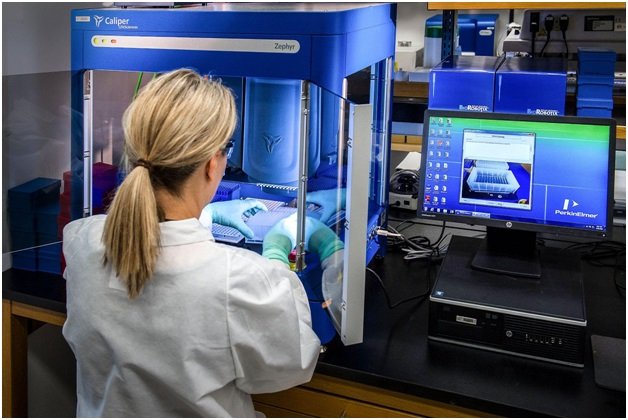Technology has become a driving force behind significant transformations in various industries, and the healthcare sector is no exception. From artificial intelligence to virtual reality, technological advancements are reshaping how healthcare is delivered and experienced.
In this blog post, we will explore the exciting possibilities that lie ahead as technology continues to revolutionize the healthcare industry, enhancing diagnostics, improving patient care, and transforming the overall healthcare landscape.
The Rise of Telemedicine: Transforming Healthcare Delivery
Telemedicine changes healthcare delivery by enabling patients to receive medical consultations and care remotely. Healthcare providers can diagnose, treat, perform regular health checks, and monitor patients without needing in-person visits through video calls, phone consultations, and online platforms.
Telemedicine california offers convenience, especially for individuals with limited mobility or living in remote areas. It also reduces healthcare costs and improves access to specialized care. With the increasing adoption of telemedicine, patients can now enjoy prompt medical attention, while healthcare providers can reach a wider patient population, impacting the ways healthcare is delivered.
Harnessing the Power of Big Data in Healthcare
Big data analytics has emerged as a game-changer in healthcare. By collecting and analyzing massive amounts of data from various sources, such as electronic health records, wearables, and clinical trials, healthcare professionals can gain valuable insights into patient trends, disease patterns, and treatment outcomes.
Big data allows for personalized medicine, identifying risk factors, predicting disease outbreaks, and enhancing clinical decision-making. Additionally, it enables researchers to accelerate medical progress and develop targeted interventions, leading to more effective and efficient healthcare practices.
Artificial Intelligence: Revolutionizing Diagnostics and Treatment
Artificial intelligence (AI) transforms the healthcare industry by improving diagnostics and treatment processes. AI algorithms can analyze medical images, such as MRIs and X-rays with astonishing accuracy, aiding in early detection and diagnosis of diseases.
AI-powered chatbots and virtual assistants enhance patient care by providing round-the-clock support, answering queries, and triaging patients. Moreover, AI-driven precision medicine tailors treatments to individual patients based on their genetic profiles, optimizing therapeutic outcomes. As AI continues to evolve, its potential to improve healthcare outcomes is all the current efforts.
The Power of Peptides: Targeted Treatment
Researchers are exploring peptides for the treatment of various conditions, including cancer, metabolic disorders, and cardiovascular diseases. With ongoing advancements in peptide drug discovery and formulation, these compounds hold promise as future therapies, offering new treatment options for patients.
They offer advantages such as high selectivity, efficacy, and relative safety, making them attractive for therapeutic interventions. They can serve as hormones, enzyme inhibitors, or receptor agonists, targeting specific disease pathways. Find more information at peptide.shop.
Virtual Reality in Healthcare: Expanding Possibilities
Virtual reality (VR) technology is opening up new possibilities in healthcare. By immersing patients in simulated environments, VR can help reduce pain and anxiety during medical procedures. It also serves as a powerful tool for medical training, allowing students to practice complex procedures in a safe and controlled virtual setting.
Additionally, VR-based therapy is being explored for various mental health conditions, phobias, and post-traumatic stress disorders. As VR technology advances, its applications in healthcare are expected to expand, transforming the patient experience and improving outcomes.
Enhancing Patient Engagement through Digital Health Solutions
Digital health solutions empower patients to participate in their healthcare journey actively. Mobile apps, patient portals, and wearable devices provide individuals access to health information, appointment scheduling, medication reminders, and even virtual consultations.
These solutions promote patient engagement by promoting self-management, enabling better communication with healthcare providers, and facilitating remote monitoring. By empowering patients with knowledge, tools, and resources, digital health solutions enhance patient satisfaction, improve treatment adherence, and ultimately lead to better health outcomes.
The Impact of Wearable Devices on Preventive Care
Wearable devices like fitness trackers and smartwatches have become increasingly popular in recent years. These devices monitor physical activity levels and track vital signs, sleep patterns, and other health-related metrics. By providing individuals with real-time feedback, wearable devices promote preventive care and encourage healthier lifestyle choices.
Moreover, the data collected by these devices can be shared with healthcare providers, facilitating personalized care plans and early intervention. Wearable devices are transforming the way individuals approach their health, promoting a proactive and preventive approach to health.
Robotics in Medicine: Precision and Efficiency in Surgical Procedures
Robotic technology revolutionizes surgical procedures, offering precision, efficiency, and improved patient outcomes. Robotic-assisted surgery enables surgeons to perform complex procedures with enhanced precision and skill. The robotic systems provide 3D visualization, wristed instruments, and tremor filtering, allowing for more precise movements during surgery.
This minimally invasive approach reduces trauma, pain, and recovery time for patients. Additionally, robotic systems can be teleoperated, enabling experts to perform surgeries remotely and expanding access to specialized care. Robotics in surgery are making procedures safer, more efficient, and less invasive.








